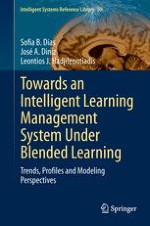
2014 | OriginalPaper | Buchkapitel
1. E-Learning Exequibility in the Information and Knowledge Society
verfasst von : Sofia B. Dias, José A. Diniz, Leontios J. Hadjileontiadis
Erschienen in: Towards an Intelligent Learning Management System Under Blended Learning
Aktivieren Sie unsere intelligente Suche, um passende Fachinhalte oder Patente zu finden.
Wählen Sie Textabschnitte aus um mit Künstlicher Intelligenz passenden Patente zu finden. powered by
Markieren Sie Textabschnitte, um KI-gestützt weitere passende Inhalte zu finden. powered by